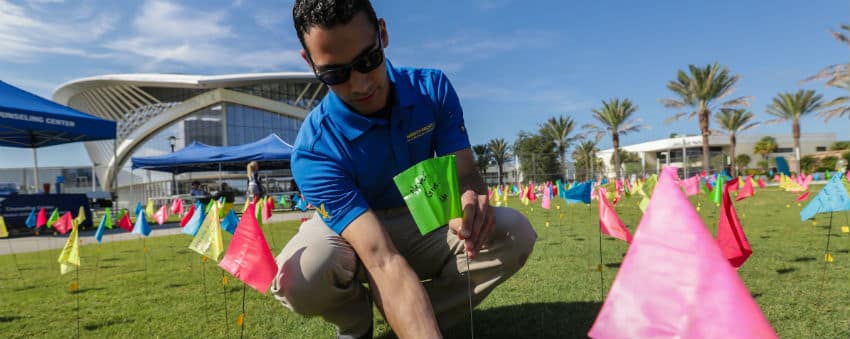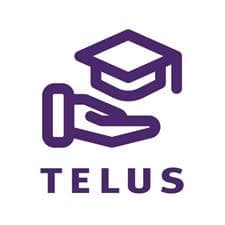
The mission of the Counseling Center is to enhance the emotional well-being of Embry-Riddle students. We believe that good mental health is a key part of overall health, and good health is essential to academic success. We support students' academic experience by providing brief mental health counseling and consultation services that help them identify barriers, improve coping, and achieve personal and academic goals.
College life is challenging and can be stressful. At some point during the college years, many students feel anxious, depressed, uncertain, confused, or overwhelmed. They may seek help from friends, family members, significant others, but in some cases, help from a trained professional is beneficial. The Counseling Center provides a calm, friendly, and supportive environment for students to address any issue or concern.
All counseling contacts are strictly confidential in accordance with Florida state privacy laws. Counseling records are not available to anyone, either on or off campus, without the student's specific written permission. The only time confidentiality will be broken is in the case of a life threatening situation when a student is at risk of harming him or herself or someone else, or when there is reason to believe a child, elderly person, or disabled person is being abused. Confidentiality may also be broken if a court order mandates that records be released or if the university mandates disclosure in response to a lawsuit. Counseling records are not kept as part of a student's academic or administrative records, but will be retained in the Counseling Center for seven (7) years after the last counseling contact with the department.
In addition to individual and couples counseling, the Center provides:
- Educational programs, activities, and presentations
- Free, anonymous online assessments and resources via our ERNIE site
- Referral for long-term counseling and/or specialized services as needed
- Referral for psychiatric evaluation and/or medication when necessary
The staff at ERAU Counseling Center have a commitment to provide a safe, welcoming environment for all students regardless of their gender, gender expression, gender identity, ethnicity, race, language, culture, religious/spiritual beliefs, sexual orientation, national origin, immigration status, age, size, physical and mental abilities, and/or socioeconomic status. We aim to demonstrate diversity through our work with individual counseling, consultation, outreach presentations, and program development. In our professional roles, we stand at the intersection of diversity and mental/emotional health by recognizing the impact of diversity on all individuals such as discrimination, stereotypes, oppression, prejudice, acculturation, and identity development.
We make an effort to promote the acceptance and understanding of individuals with diverse backgrounds and to educate ourselves and others on diversity-related matters. We strive to be affirming, respectful, and open minded to individuals with diverse backgrounds not only among ourselves within the Counseling Center, but across the campus community through our contact with all students, staff, faculty, and administrators. Not only do we want to share this vision, but we hope to contribute to the reduction of problems such as prejudice, discrimination, and exploitation.
We strive to recognize when our multiple identities affect how we may relate to or work with our colleagues and the individuals we serve. It is part of our professional responsibility to gain continuing education for ourselves regarding individuals of diverse backgrounds. We work towards recognizing and understanding the value of our similarities and differences. We respect the freedom for people to remain committed to personal values.
We see the richness and benefit of living in a multicultural society at large and at the University. Our hope is that individuals at the Counseling Center, on campus, and within the Eagle community to feel at peace, to live and be themselves.
Counseling Services provides confidential mental health counseling services, consistent with the parameters of state and federal laws, as well as ethical standards. Providing confidential services means that Counseling Services staff members do not release your information outside Counseling Services without your permission. Professional ethics codes and state laws consider information discussed between a counselor and client (18 years and older) to be strictly confidential.
The information that you share in counseling, including the fact you used our services, will not be disclosed to anyone (including university officials, faculty, staff, parents, or outside agencies) without your written permission, subject to the exceptions described below. Counseling records are not part of your academic or administrative records, as they are "therapy notes" but will be retained in the Counseling Center for seven (7) years after your last counseling contact with the department.
The primary, but not limited to, exceptions to confidentiality may arise in situations involving imminent danger to yourself or others, abuse or neglect of a child or vulnerable adult, responses to lawsuits and legal actions, subpoenas or orders from other tribunals or state agencies, in compliance with state and federal laws. Additional exceptions may arise, particularly in the context of legal proceedings, in which event you will be notified as appropriate, consistent with Counseling Services staff members’ professional obligations and state and federal law.
Exceptions to Confidentiality
State and Federal law and professional ethics do allow for some exceptions regarding confidentiality where it is permissible to breach confidentiality.
- If there is evidence a student poses a clear and immediate probability of harming themselves, and they are unwilling or unable to follow treatment recommendations, a counselor may seek involuntary admission to a hospital. If there is concern a student may engage in risky behavior potentially resulting in serious harm to the student and/or the public, a counselor may contact other campus resources: Campus Safety, Dean of Students or Health Services.
- Harm to others: If a counselor has reason to believe a student is threatening physical violence against another, they may be required to take action to ensure the other person is protected. Such action may include contacting the police, notifying the intended victim, and seeking involuntary hospitalization of the student. If there is concern a student may engage in risky behavior potentially resulting in serious harm to the student and/or the public, a counselor may contact other campus resources: Campus Safety, Dean of Students or Health Services.
- Abuse/Neglect of a child/elder/disabled person: Counselors who know or reasonably suspect a minor or a vulnerable adult is being abused, neglected, or exploited are legally obligated to report this information to appropriate state agencies.
- Court Subpeona: A court-ordered subpoena can require the Counseling Center to release information contained in records or for a counselor to testify in a court hearing.
- Lawsuit against university: When a lawsuit is filed against the University, ERAU's General Counsel can require that the Counseling Center release the record to them when disclosure is deemed relevant to the lawsuit and/or requested by the University Insurance Company in the event of a lawsuit against the University (e.g. Demand Letter).
- Medical Emergency: In the event of a medical emergency, the Counseling Center Staff will seek medical intervention (e.g. 911, Health Services).
- Students must be currently attending classes at the DB campus to be eligible for services
- Services are free of charge
- Appointments are scheduled on the hour
- Couples counseling: both must be students currently attending classes at the DB
- Cancellations and Relationships: If you can’t make your appointment, please call us 24 hours prior to your appointment at 386-226-6035. We are open Monday-Friday 8 a.m.-5 p.m. but you can leave a voicemail message after hours
- No-shows: If you cancel prior to your appointment you forfeit the sessions, meaning that one counseling session is deducted from your semester limit.
- Late Arrivals: Arriving 15 minutes late for an appointment, may result in the appointment being forfeited and counted as a no-show
Email is not a secure mode of communication. It is inappropriate to use email to convey information of a personal or urgent matter. Please call the Counseling Center at 386-226-6035 to scheduled/change/cancel appointments. The Counseling Center will ONLY contact you (email/phone) with your consent as indicated on your client paperwork.
After-Hours Emergencies
Counselors are NOT on-call after hours nor on weekends. The following crisis intervention services are available 24/7:
- Call 1-800-273-TALK (8255): Lifeline Crisis Hotline
- Text HELP to 741-741: Crisis Text Line
 TELUS Health Student Support: ERAU has partnered with Telus Health to provide emergency and ongoing support to all ERAU students via 24/7 texting and phone. Students can access helpful resources and virtual counseling services in your preferred language and during evening and weekend hours. Telus Health is available to ERAU students from anywhere within the U.S. or internationally.
TELUS Health Student Support: ERAU has partnered with Telus Health to provide emergency and ongoing support to all ERAU students via 24/7 texting and phone. Students can access helpful resources and virtual counseling services in your preferred language and during evening and weekend hours. Telus Health is available to ERAU students from anywhere within the U.S. or internationally.
- Learn more and download the app at https://myssp.app/us/home
Contact Us
Hours of Operation
Monday-Friday, 8 a.m.-5 p.m.
Related Resources
24-Hour Emergency Assistance
- Campus Safety:
386-226-SAFE (7233) - Suicide Prevention Hotline:
800-273-TALK (8255) - Rape Crisis Hotline:
800-503-7621 - Domestic Violence Hotline:
800-799-7233 - Disaster Distress Helpline:
800-985-5990 - Crisis Text Line:
Text HELP to 741-741
